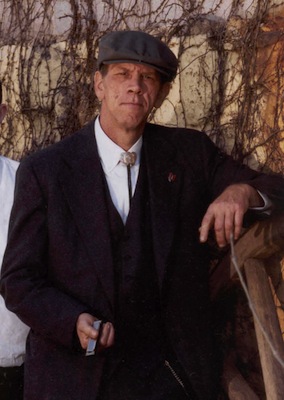I still have a friend who is a communist. Actual communists are scarce as hen's teeth, far fewer than principled conservatives, in an America in which the Republican Party calls President Barack Obama a socialist.
But in his honor, if you will, it occurs to me to describe some
of the differences between the "workers" of the day of Karl Marx and Friedrich
Engels and those people who fill that role, or (speaking in Marxian terms)
comprise that social class, today.
The first difference that struck me
was that even in those days of the Industrial Revolution, most of the people in
the two largest countries in the world, the US and Russia, as well as most of
the people in every other smaller country, were tied to the land. Even in the
industrial antebellum North, of which the population of Whites exceeded that of
the South by 4 to 1, most people were either farmers or part of
agriculturally-based rural communities.
Today's America has largely left
the land. Three percent of America are actually farmers, last I looked, and the
kids just wanting out en masse. Even a dumb farm kid can get a tattoo and a
t*tty ring and be suave and urban today. How'd the post-WWI song go? "How can
you keep 'em down on the farm, after they've seen Par-ee?"
They had to
work or starve, they didn't have Walmart's handy to go and get food that someone
huge company thousands of miles away had grown, or the money to purchase it
with. They had to be on the land.
Now we get in our vehicles and drive
across stretches the size of more than one whole European country a day. Even 5
days in a row! The rulers of technocratic America do not really know where
everyone is as well as the dukes and kings and queens that still ruled Europe then,
regardless of the inroads of Parliamentary democracy.
However, the technocratic managers of today have
this gigantic advantage: they don't NEED to know where everyone is to exploit and control them, because they
may be confident that everyone is receiving-- virtually everyone has ready
access to-- the same mediated information.
And when you are in control
of the messages that are constantly beamed at a target group-- and there's more
than one target group, of course, but the overall target group may be described,
roughly, as all consumers who are not identified resisters to the soothing,
cooling messages of
"There's plenty of stuff for everybody folks, no
scarcity here, never will be, we will always have good for you to buy! Always
newer, faster, sexier, better for you!"--
you can have
some confidence in predicting the general time of the inevitable collapse, and
have your golden parachutes ready well in advance.
There are still plenty
of what Marx would have recognized as workers. There's 20 million people in
America that drive trucks full or part-time for a living.
But those who
claimed-- and there were plenty of techno-utopianists who did-- that the
Information Society would create enough jobs to replace those which are
inevitably, permanently lost through the automation of agriculture and other
factors (i.e., outsourcing, as American capitalists followed the pointing
invisible finger to India and Malaysia and China)-- were blowing smoke up our
wazoo.
More American workers shuffle paper, and money, than pick fruit,
or load steel, or pump oil. It's a post (even post-post) industrial technocratic
maintenance society.
We are on the hospital bed, though we don't know
it. America is only in charge of anything right now because it has armed itself
beyond the budgets of all the rest of the world, and people may well think to be
apprehensive about whatever it might do next.
(Note: You can view every article as one long page if you sign up as an Advocate Member, or higher).






